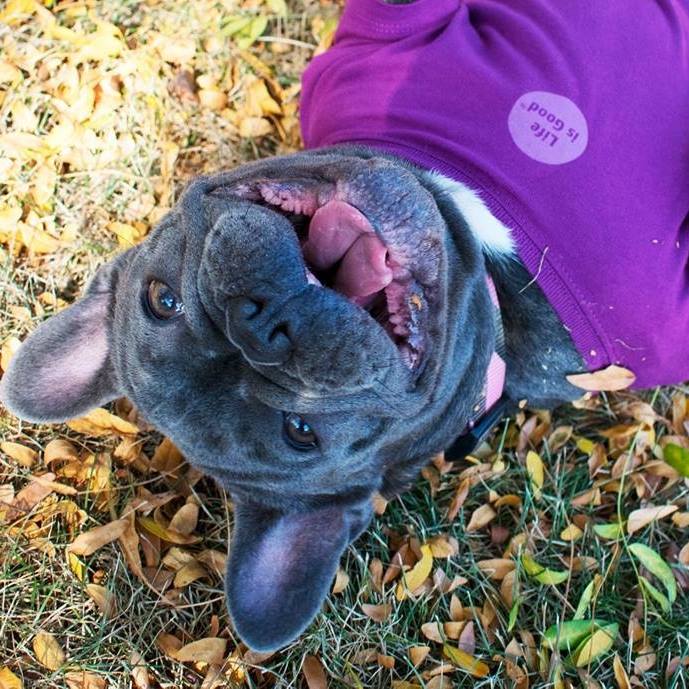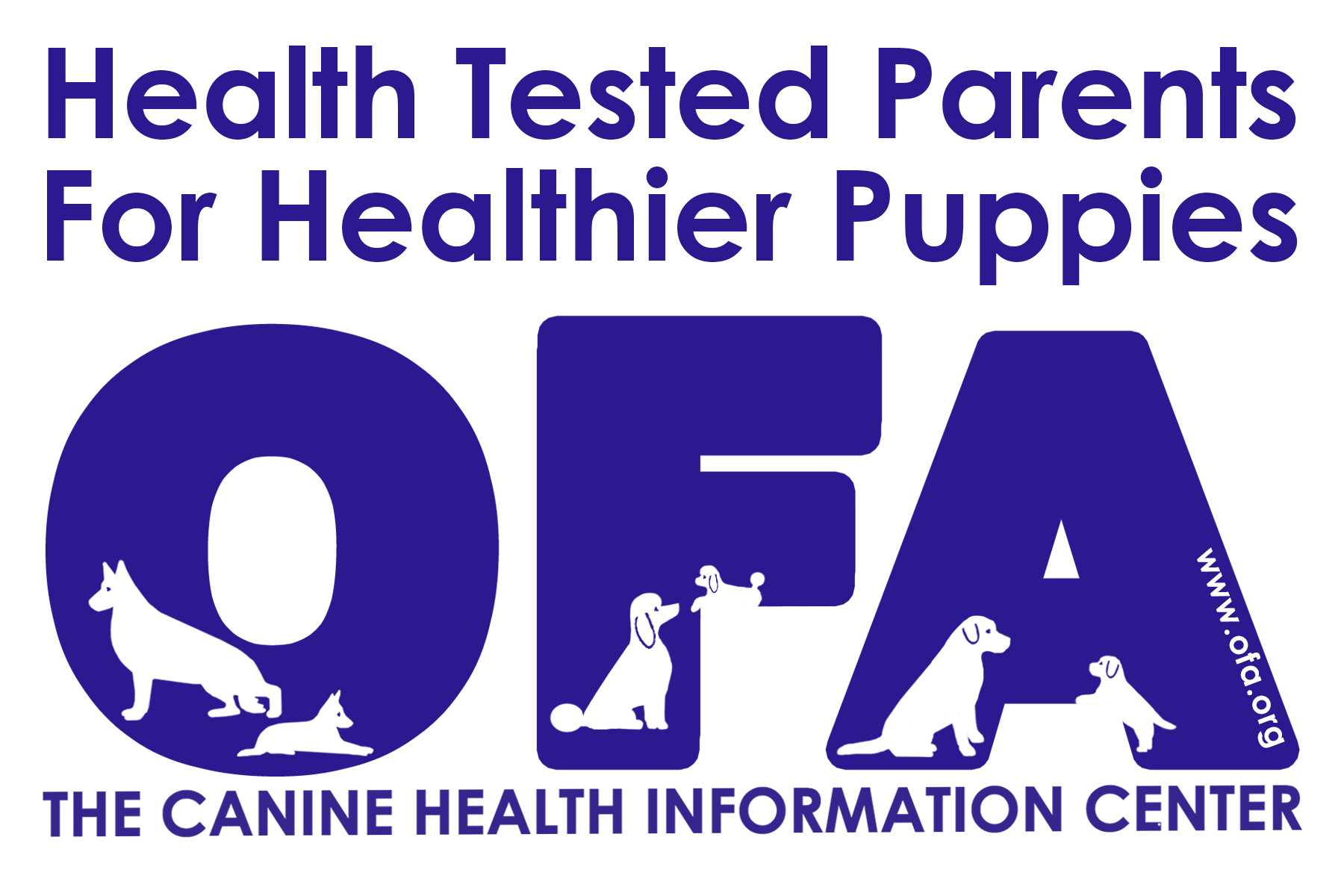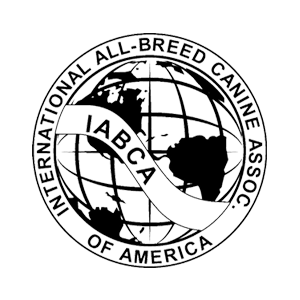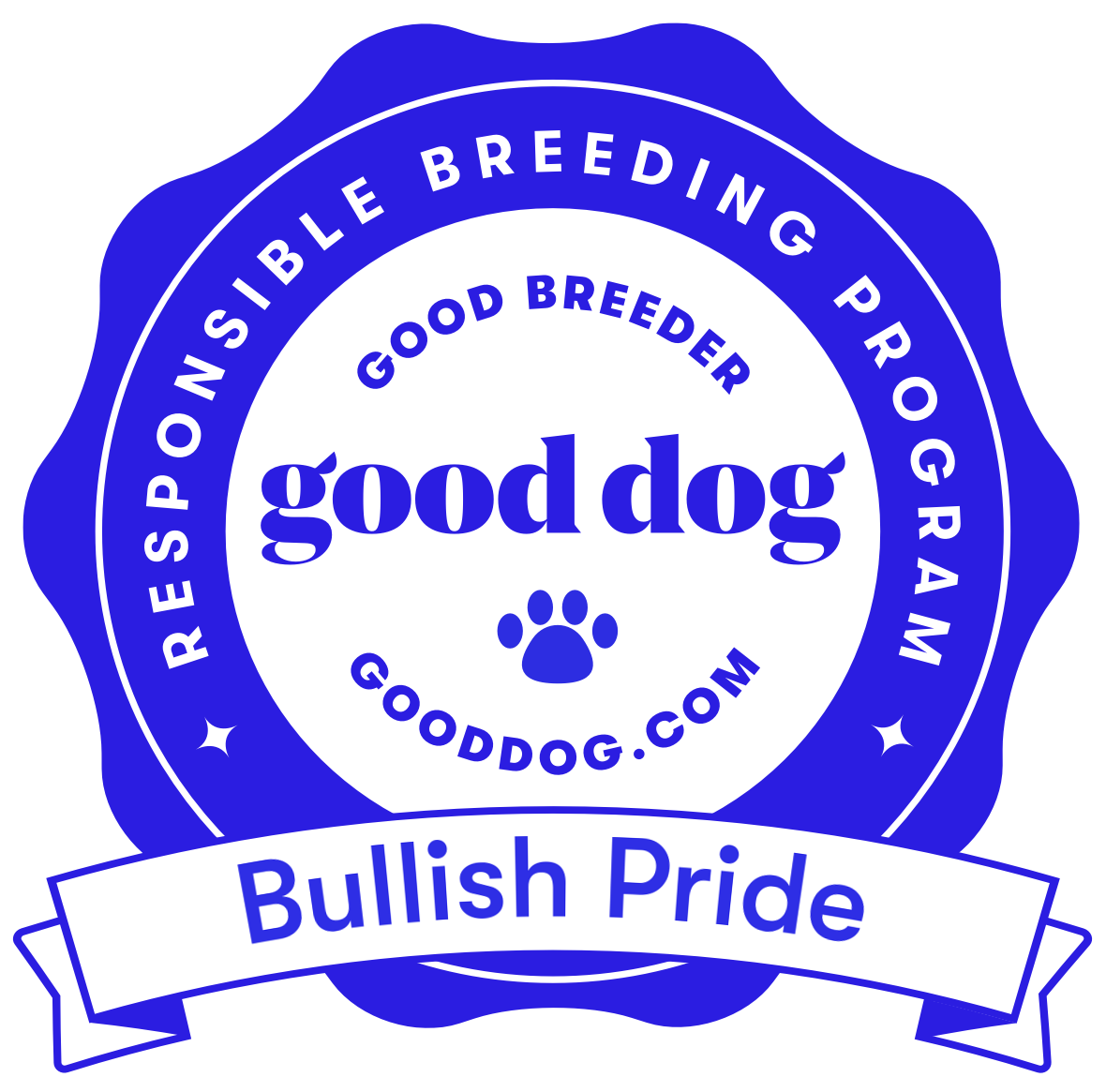Frenchie Facts & Information
Frenchies and water *do not mix*--- they are like anchors and will sink and drown before you realize they are gone. If you have a pool, pond, or any other body of water, it is imperative to fence it off/restrict access and always supervise your frenchie when around it. We highly recommend purchasing a life preserver if he/she will be around water.
Frenchies and heat/humidity *do not mix*--- heat and/or humidity are quick killers of the French Bulldog. Please take a drinking straw and put it in your mouth. Pinch your nostrils closed. Now breathe through the straw. Run around a little bit. See how hard that is to breathe? That is how your frenchie feels when it is hot/humid outside. They will die quickly from even slight heat/humidity. It goes to say, never, ever, ever leave your frenchie in a car nor outside unsupervised when the temperature is even slightly warm.
Frenchies are a brachycephalic breed. By definition, they have short noses, flat faces, shortened head, a squished face. These adorable squished faces often will result in stenotic nares (pinched nostrils) and/or elongated soft palates. Your vet can determine if surgery will be necessary to improve breathing function and comfort. If you plan to have your pet spayed/neutered, I recommend asking your vet to do the nares/palate surgery at the same time *if it is needed* (not all need it!) so that the puppy only has to go under anesthesia once.
Frenchies are a chondrodysplastic breed. This means they have dwarf-like characteristics. These characteristics make them look like-- a French Bulldog! This gene mutation can also cause spine/vertebra issues. It is important to limit stair use, not allow jumping on or off furniture, etc. We use and recommend doggy stairs to get up and down off of furniture. It is also important to have no structured exercise until the growth plates have closed at around 18 months of age. Playing in the yard and short walks are fine, but no forced exercise as this can increase spine/vertebra/hip issues in growing puppies.
Frenchies, like all bulldog breeds, *can* have issues with allergies. These can range from mild irritation to the paws in the spring when the grass starts growing again to chronic ear and skin infections. It is important to feed a healthful diet and practice good hygiene with your french bulldog. I recommend doing a weekly ‘once over’ which includes a nail trim, wiping of the wrinkles/skin folds/between paw pads with a chlorhexadine wipe, cleaning the ears with Epi Otic or Wondercide Ear cleaner, applying wrinkle balm and nose butter to the face and bathing monthly with a hypoallergenic pet shampoo. The products that we use are under the "Puppy Shopping" page.
Frenchies can be sensitive to anesthesia-- please make sure your vet is experienced with bulldog (brachycephalic) breeds and the correct protocols for anesthetizing them.
Frenchies do best if they are fed a wet diet-- raw, rehydrated freeze dried raw, or soaked kibble. They can choke on dry kibble so it's important to soak kibble well prior to feeding.
Frenchies are sensitive to secondhand smoke. Please do not smoke inside your home.
Frenchies THRIVE on love and attention and want to be with you as much as possible. Please cuddle your frenchie as often as possible, they will become your best companion!
Frenchies are prone to several serious health issues so I recommend all puppy buyers purchase health insurance for their baby.
~Written by Legend Frenchies
Why Are Frenchies So Expensive ?
Let’s start from the beginning first, a breeder will buy a quality female and spend between $5-$10k (some even spend between $10-$20k). Then that pup will be raised for a year and a half to, two years old before the breeding process can even begins.
This puppy will receive top-quality care at veterinarians as well as the way this dog will be raised in the home, I’m talking the best of everything. Including health and color testing from Embark, OFA certifications costing $400 and way up.
Now that the female is ready to breed her heat cycle has started the breeder needs to get the timing just right which means progesterone testing which is $150 and up depending on the reproductive vet. This will need to be done multiple times till the numbers are just right.
Then the breeder pays for the stud fee $2,500-$10,000 depending on the stud they choose.
Now an Artificial Insemination (AI), Transcervical Insemination (TCI) or Surgical Insemination (SI) procedure needs to be done. If done at the vet (which we do all our breeding's at our reproductive vet) this will cost between $700-$1200 and we don’t even know if the female is going to actually become pregnant yet.
30 days or so after the last AI the breeder will pay for an ultrasound to confirm pregnancy this will cost $60-$150.
Then on day 54 the breeder will go to the vet and get an x-ray to count skeletons to see how many puppies the female is carrying this cost $100-$300.
Then you have to pray you female doesn’t go into labor in the middle of the night because if that happens the breeder will be paying $5,000 for an emergency c-section. If all goes well and the female makes it to day 61-63 the breeder will go in for a scheduled c-section costing $1,200-$3,000 depending on the vet.
If all pups are healthy then the breeder will take babies and mom home. Mom has stitches and is on antibiotics, pups need to be fed every two hours and watched 24/7 for two weeks that means the breeder gets no sleep or is able to go anywhere at all. The breeder is a zombie at this point giving everything to these sweet little Frenchie babies.
At two weeks old pups are still nursing every 2-3 hours and the breeder is still not getting much sleep because sometimes mom lays on pups, or pups aspirate on milk and need suction immediately (sometimes may need to go into incubator with oxygen) so basically breeders whole life surrounds around these little babies yet again for another two weeks. Breeder has to keep the room at just the right temperature, keep a heating pad under pups, make sure whelping area is clean with a new blanket, vet bedding and potty pads daily,most breeders also have a good quality air purifier running at all times as well as pups are kept on an egg crate foam to prevent pups from developing a flat chest.
Congratulations, the breeder has now made it to the 4th week. Pups are now walking around and ready to eat puppy mush several times a day and are being weaned from mom. Here is where things get messy, puppies are pooping non stop and the amount of laundry that needs to be done on a daily basis is insane, oh, and dont forget to sanitize toys every time they get messy, which is a lot. In between several feedings of puppy mush a day,laundry,sanitizing toys making sure pups get dewormed ,vaccinated, and vet checked, the breeder must also spend 6-8 hours a day answering questions for potential homes for the puppies. People will message and sometimes call all hours day and night the breeder will treat each person with respect and answer every question no matter how repetitive it can be.
Now we are to the 8 weeks mark pups are ready to go home. The breeder will now put together a puppy package for each new Frenchie parent, costing more money $200-$300 per puppy package as well as paying for AKC paperwork and ACK Reunite. Breeder will also have done health and color testing if pups parents want full rights costing $300-$400 per pup. Now what about the pet parents that live out of state, here is where the puppy delivery comes in, the breeder will set up taking up more time making sure everything goes smooth for the owners.
This is just the short version of what us breeders go through with each litter; and I did not even touch on when things don’t go smoothly with pups health, or a breeder loosing an entire litter. As well as the supplies purchased on a regular basis, such as goats milk, or puppy formula, puppy food, gloves sanitizing products, puppy pads, toys blankets, laundry soap, and the list goes on and on.
We give our lives to these little babies, we hardly get to leave our home or go on vacation. We work around the clock 24/7. Yet people call us greedy breeders and all we car about is the money. This is the question that is mostly asked, WHY ARE FRENCHIES SO EXPENSIVE. Now you know!
I hope this helps more people understand what all goes into the sweet Frenchie picture you see on Instagram or Facebook and maybe give more understanding as to why they cost what they do.
We love each and every Frenchie baby that comes into our lives and we do everything that we possibly can to make sure they have the best start in life while they are with us.
Vaccine & Canine Diseases
Many common canine diseases can be prevented or treated with available vaccines.
Dogs are susceptible to many diseases transmitted by contact with infected dogs or wildlife. Here are the common canine diseases:
Rabies - Transmitted by bites from infected animals. Symptoms can include seizures, paralysis,
aggression and lack of coordination. Unless treated quickly, rabies is often fatal.
Distemper - Transmitted by contact with secretions from an infected dog’s nose. Causes pneumonia
and seizures. There is no cure for the disease. Several vaccines exist that prevent the
disease. Distemper is the leading cause of infectious disease death in dogs.
Parvovirus - Transmitted by exposure to contaminated feces. Causes vomiting and diarrhea.
Treatment is intensive, requiring intravenous fluids and medications. Mainly a disease of
unvaccinated puppies and dogs; younger pups are more likely than older dogs to die.
Hepatitis (Adenovirus) - Virus is found in feces and saliva. Causes fever, vomiting, and diarrhea.
Treatment consists of aggressive fluid therapy. Often fatal, but prevented
through vaccination.
Parainfluenza - Transmitted by nasal secretions. Causes coughing and sneezing. Antibiotic treatment
helps speed recovery.
Bordetella - Transmitted by nasal secretions. Causes coughing and sneezing. Antibiotic treatment
helps control symptoms.
Lyme disease - Transmitted by ticks. Causes fever and joint inflammation. Treatment with antibiotics
usually successful.
Leptospirosis - Picked up from water contaminated by infected urine. Causes kidney and liver disease.
Many infections go unnoticed; severe infections are often fatal.
Giardia - Picked up by drinking contaminated water contaminated by feces or by eating something that
has been contaminated by feces, like grass. Causes diarrhea. Treated with antibiotics.
Coccidiosis - Usually, coccidiosis is associated with other infectious agents, immunosuppression, or
stress. Can be picked up by feces or other substances in the environment that may
contain dog feces. Causes diarrhea (sometimes bloody), weight loss, and dehydration.
Frenchies and water *do not mix*--- they are like anchors and will sink and drown before you realize they are gone. If you have a pool, pond, or any other body of water, it is imperative to fence it off/restrict access and always supervise your frenchie when around it. We highly recommend purchasing a life preserver if he/she will be around water.
Frenchies and heat/humidity *do not mix*--- heat and/or humidity are quick killers of the French Bulldog. Please take a drinking straw and put it in your mouth. Pinch your nostrils closed. Now breathe through the straw. Run around a little bit. See how hard that is to breathe? That is how your frenchie feels when it is hot/humid outside. They will die quickly from even slight heat/humidity. It goes to say, never, ever, ever leave your frenchie in a car nor outside unsupervised when the temperature is even slightly warm.
Frenchies are a brachycephalic breed. By definition, they have short noses, flat faces, shortened head, a squished face. These adorable squished faces often will result in stenotic nares (pinched nostrils) and/or elongated soft palates. Your vet can determine if surgery will be necessary to improve breathing function and comfort. If you plan to have your pet spayed/neutered, I recommend asking your vet to do the nares/palate surgery at the same time *if it is needed* (not all need it!) so that the puppy only has to go under anesthesia once.
Frenchies are a chondrodysplastic breed. This means they have dwarf-like characteristics. These characteristics make them look like-- a French Bulldog! This gene mutation can also cause spine/vertebra issues. It is important to limit stair use, not allow jumping on or off furniture, etc. We use and recommend doggy stairs to get up and down off of furniture. It is also important to have no structured exercise until the growth plates have closed at around 18 months of age. Playing in the yard and short walks are fine, but no forced exercise as this can increase spine/vertebra/hip issues in growing puppies.
Frenchies, like all bulldog breeds, *can* have issues with allergies. These can range from mild irritation to the paws in the spring when the grass starts growing again to chronic ear and skin infections. It is important to feed a healthful diet and practice good hygiene with your french bulldog. I recommend doing a weekly ‘once over’ which includes a nail trim, wiping of the wrinkles/skin folds/between paw pads with a chlorhexadine wipe, cleaning the ears with Epi Otic or Wondercide Ear cleaner, applying wrinkle balm and nose butter to the face and bathing monthly with a hypoallergenic pet shampoo. The products that we use are under the "Puppy Shopping" page.
Frenchies can be sensitive to anesthesia-- please make sure your vet is experienced with bulldog (brachycephalic) breeds and the correct protocols for anesthetizing them.
Frenchies do best if they are fed a wet diet-- raw, rehydrated freeze dried raw, or soaked kibble. They can choke on dry kibble so it's important to soak kibble well prior to feeding.
Frenchies are sensitive to secondhand smoke. Please do not smoke inside your home.
Frenchies THRIVE on love and attention and want to be with you as much as possible. Please cuddle your frenchie as often as possible, they will become your best companion!
Frenchies are prone to several serious health issues so I recommend all puppy buyers purchase health insurance for their baby.
~Written by Legend Frenchies
Why Are Frenchies So Expensive ?
Let’s start from the beginning first, a breeder will buy a quality female and spend between $5-$10k (some even spend between $10-$20k). Then that pup will be raised for a year and a half to, two years old before the breeding process can even begins.
This puppy will receive top-quality care at veterinarians as well as the way this dog will be raised in the home, I’m talking the best of everything. Including health and color testing from Embark, OFA certifications costing $400 and way up.
Now that the female is ready to breed her heat cycle has started the breeder needs to get the timing just right which means progesterone testing which is $150 and up depending on the reproductive vet. This will need to be done multiple times till the numbers are just right.
Then the breeder pays for the stud fee $2,500-$10,000 depending on the stud they choose.
Now an Artificial Insemination (AI), Transcervical Insemination (TCI) or Surgical Insemination (SI) procedure needs to be done. If done at the vet (which we do all our breeding's at our reproductive vet) this will cost between $700-$1200 and we don’t even know if the female is going to actually become pregnant yet.
30 days or so after the last AI the breeder will pay for an ultrasound to confirm pregnancy this will cost $60-$150.
Then on day 54 the breeder will go to the vet and get an x-ray to count skeletons to see how many puppies the female is carrying this cost $100-$300.
Then you have to pray you female doesn’t go into labor in the middle of the night because if that happens the breeder will be paying $5,000 for an emergency c-section. If all goes well and the female makes it to day 61-63 the breeder will go in for a scheduled c-section costing $1,200-$3,000 depending on the vet.
If all pups are healthy then the breeder will take babies and mom home. Mom has stitches and is on antibiotics, pups need to be fed every two hours and watched 24/7 for two weeks that means the breeder gets no sleep or is able to go anywhere at all. The breeder is a zombie at this point giving everything to these sweet little Frenchie babies.
At two weeks old pups are still nursing every 2-3 hours and the breeder is still not getting much sleep because sometimes mom lays on pups, or pups aspirate on milk and need suction immediately (sometimes may need to go into incubator with oxygen) so basically breeders whole life surrounds around these little babies yet again for another two weeks. Breeder has to keep the room at just the right temperature, keep a heating pad under pups, make sure whelping area is clean with a new blanket, vet bedding and potty pads daily,most breeders also have a good quality air purifier running at all times as well as pups are kept on an egg crate foam to prevent pups from developing a flat chest.
Congratulations, the breeder has now made it to the 4th week. Pups are now walking around and ready to eat puppy mush several times a day and are being weaned from mom. Here is where things get messy, puppies are pooping non stop and the amount of laundry that needs to be done on a daily basis is insane, oh, and dont forget to sanitize toys every time they get messy, which is a lot. In between several feedings of puppy mush a day,laundry,sanitizing toys making sure pups get dewormed ,vaccinated, and vet checked, the breeder must also spend 6-8 hours a day answering questions for potential homes for the puppies. People will message and sometimes call all hours day and night the breeder will treat each person with respect and answer every question no matter how repetitive it can be.
Now we are to the 8 weeks mark pups are ready to go home. The breeder will now put together a puppy package for each new Frenchie parent, costing more money $200-$300 per puppy package as well as paying for AKC paperwork and ACK Reunite. Breeder will also have done health and color testing if pups parents want full rights costing $300-$400 per pup. Now what about the pet parents that live out of state, here is where the puppy delivery comes in, the breeder will set up taking up more time making sure everything goes smooth for the owners.
This is just the short version of what us breeders go through with each litter; and I did not even touch on when things don’t go smoothly with pups health, or a breeder loosing an entire litter. As well as the supplies purchased on a regular basis, such as goats milk, or puppy formula, puppy food, gloves sanitizing products, puppy pads, toys blankets, laundry soap, and the list goes on and on.
We give our lives to these little babies, we hardly get to leave our home or go on vacation. We work around the clock 24/7. Yet people call us greedy breeders and all we car about is the money. This is the question that is mostly asked, WHY ARE FRENCHIES SO EXPENSIVE. Now you know!
I hope this helps more people understand what all goes into the sweet Frenchie picture you see on Instagram or Facebook and maybe give more understanding as to why they cost what they do.
We love each and every Frenchie baby that comes into our lives and we do everything that we possibly can to make sure they have the best start in life while they are with us.
Vaccine & Canine Diseases
Many common canine diseases can be prevented or treated with available vaccines.
Dogs are susceptible to many diseases transmitted by contact with infected dogs or wildlife. Here are the common canine diseases:
Rabies - Transmitted by bites from infected animals. Symptoms can include seizures, paralysis,
aggression and lack of coordination. Unless treated quickly, rabies is often fatal.
Distemper - Transmitted by contact with secretions from an infected dog’s nose. Causes pneumonia
and seizures. There is no cure for the disease. Several vaccines exist that prevent the
disease. Distemper is the leading cause of infectious disease death in dogs.
Parvovirus - Transmitted by exposure to contaminated feces. Causes vomiting and diarrhea.
Treatment is intensive, requiring intravenous fluids and medications. Mainly a disease of
unvaccinated puppies and dogs; younger pups are more likely than older dogs to die.
Hepatitis (Adenovirus) - Virus is found in feces and saliva. Causes fever, vomiting, and diarrhea.
Treatment consists of aggressive fluid therapy. Often fatal, but prevented
through vaccination.
Parainfluenza - Transmitted by nasal secretions. Causes coughing and sneezing. Antibiotic treatment
helps speed recovery.
Bordetella - Transmitted by nasal secretions. Causes coughing and sneezing. Antibiotic treatment
helps control symptoms.
Lyme disease - Transmitted by ticks. Causes fever and joint inflammation. Treatment with antibiotics
usually successful.
Leptospirosis - Picked up from water contaminated by infected urine. Causes kidney and liver disease.
Many infections go unnoticed; severe infections are often fatal.
Giardia - Picked up by drinking contaminated water contaminated by feces or by eating something that
has been contaminated by feces, like grass. Causes diarrhea. Treated with antibiotics.
Coccidiosis - Usually, coccidiosis is associated with other infectious agents, immunosuppression, or
stress. Can be picked up by feces or other substances in the environment that may
contain dog feces. Causes diarrhea (sometimes bloody), weight loss, and dehydration.

.jpg)


.jpg)
.jpg)








